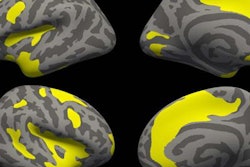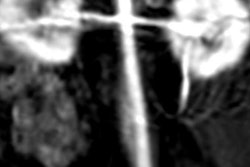Dear AuntMinnie Member,
If you're like us, you're counting off the days until the start of RSNA 2017. But if you just can't wait until radiology's showcase meeting starts in Chicago on November 26, then check out our sneak peek at some of the sessions that will be presented at the conference in our RADCast @ RNSA special section.
First up is an article on a study in which Chinese researchers used functional MRI to detect changes in brain function that are similar between individuals who have clinical depression and those with social anxiety. The researchers found the similarities in the salience and dorsal attention networks of the brain. Click here to learn more.
In a poster to be presented on November 27, researchers from Philadelphia addressed the controversy over how often women should undergo breast screening with a novel approach: They asked women what they wanted. Turns out, their preferences run counter to what many skeptics of mammography screening would want you to believe. Get the rest of the story by clicking here.
In a related story, researchers in Sweden found that obese women would benefit from more frequent breast screening, in an article you can read by clicking here.
Finally, check out this article on a study performed by German researchers who discovered that late gadolinium enhancement on MRI scans could be a sign of myocardial scarring in competitive male triathletes. Interestingly, they didn't find similar scarring in the hearts of female triathletes. Read more by clicking here.
Daily coverage from McCormick Place starts on Sunday, November 26. Check back then at radcast.auntminnie.com.
AI for pneumonia
The RSNA conference isn't the only news making headlines in radiology this week, though. Researchers from Stanford University raised a ruckus with a study that compared the performance of an artificial intelligence algorithm they developed with the performance of radiologists for diagnosing 14 chest conditions, including pneumonia.
Coverage in the mainstream media loudly proclaimed that the study meant AI performed better than radiologists. But is it really that simple? Read more by clicking here, or visit our Artificial Intelligence Community at ai.auntminnie.com.
We hope all of our readers in the U.S. have a happy Thanksgiving, and see you in Chicago!



.fFmgij6Hin.png?auto=compress%2Cformat&fit=crop&h=100&q=70&w=100)




.fFmgij6Hin.png?auto=compress%2Cformat&fit=crop&h=167&q=70&w=250)











